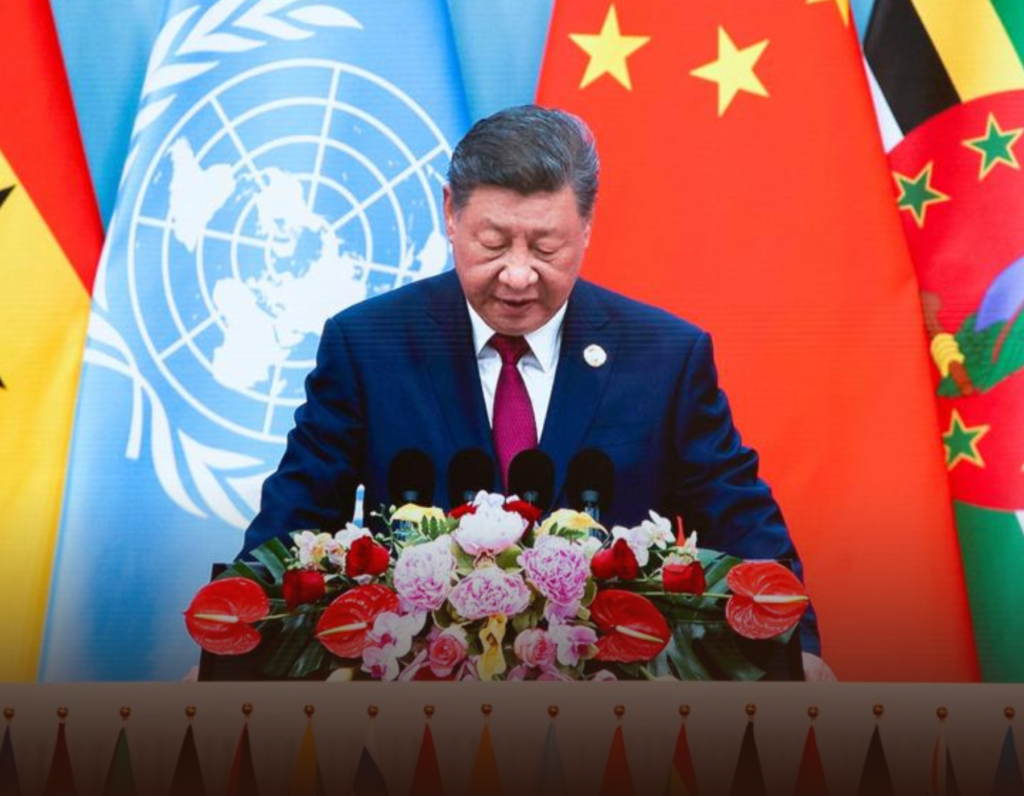African policymakers, academics, and development experts hailed China’s quartet of global initiatives as tangible instruments for advancing peace, prosperity, and inclusive growth across the continent. During a half-day webinar titled “The Benefits of China’s Four Global Initiatives to Africa,” participants reflected on how the Global Development Initiative (GDI), the Global Security Initiative (GSI), the Global Civilization Initiative (GCI) and the Global Governance Initiative (GGI) may reshape Africa’s engagement with global governance, development finance, and cross-continental partnerships.
A highlight of the event was remarks by Virgile Rwanyagatare, Director-General at Rwanda’s Ministry of Foreign Affairs, who noted that the GDI already aligns with key United Nations Sustainable Development Goals by closing gaps in financing, technology and capacity building in areas such as poverty reduction, food security, industrialisation, digital economy, green development, connectivity, health and education. “In Africa and Rwanda in particular, the GDI provides a framework to bridge financing shortfalls and to promote practical cooperation in eight key areas,” he said.
Experts also underscored the relevance of the GSI for a continent confronting cross-border conflicts, cyber-threats and weak governance in some regions. “The principles of the GSI resonate deeply,” Rwanyagatare added, pointing to how the initiative dovetails with the African Union’s Agenda 2063 objective of “Silencing the Guns.”
Nigeria and China appear to be moving in a similar direction of diversified cooperation. A recent agreement signed between the nations included an economic and nuclear-energy pact, deepening ties beyond infrastructure to scientific capacity and strategic sectors. Meanwhile, Kenya and China upgraded their diplomatic ties earlier this year amid a turbulent global context, signing key agreements covering technology, vocational education and transport.
The webinar further explored how the GCI fosters cultural exchanges and people-to-people diplomacy, while the GGI is seen as a paradigm for reforming global governance structures. Researcher Frederick Golooba-Mutebi explained that the GGI offers developing countries a voice in a system they have long viewed as imbalanced. “There is no doubt that developing countries have long been victims of the way the global governance system is currently structured… The GGI thus has the opportunity to redress those inequities.”
China’s ambassador to Rwanda, Gao Wenqi, reiterated Beijing’s commitment to a “shared future for humanity,” emphasising that these initiatives are being widely recognised among developing countries for the results they produce, not just the rhetoric. These remarks underscore a narrative common across many Africa–China engagements in recent years: that cooperation is shifting from large-scale infrastructure towards more strategic, institution-driven partnerships.
The emerging dialogue signals an evolution in how African governments view China’s role, not simply as a funder of projects, but as a partner in governance, capacity building and global reform. Rwanda, a long-standing partner of China, has benefited from Chinese investment in digital infrastructure and manufacturing, illustrating how multi-dimensional cooperation is becoming the norm in bilateral ties.
Still, the experts acknowledged challenges. Implementing the initiatives will require robust local institutions, transparency in financing, community engagement and alignment with national priorities. The webinar concluded that success will hinge on how effectively African governments translate high-level commitments into concrete, measurable outcomes at the local level.
In an era of shifting global alliances and rising competition for influence, the endorsement of China’s global initiatives by African voices marks more than symbolic support – it reflects a growing alignment of strategic intent, governance reform and shared growth philosophy between Africa and China.





